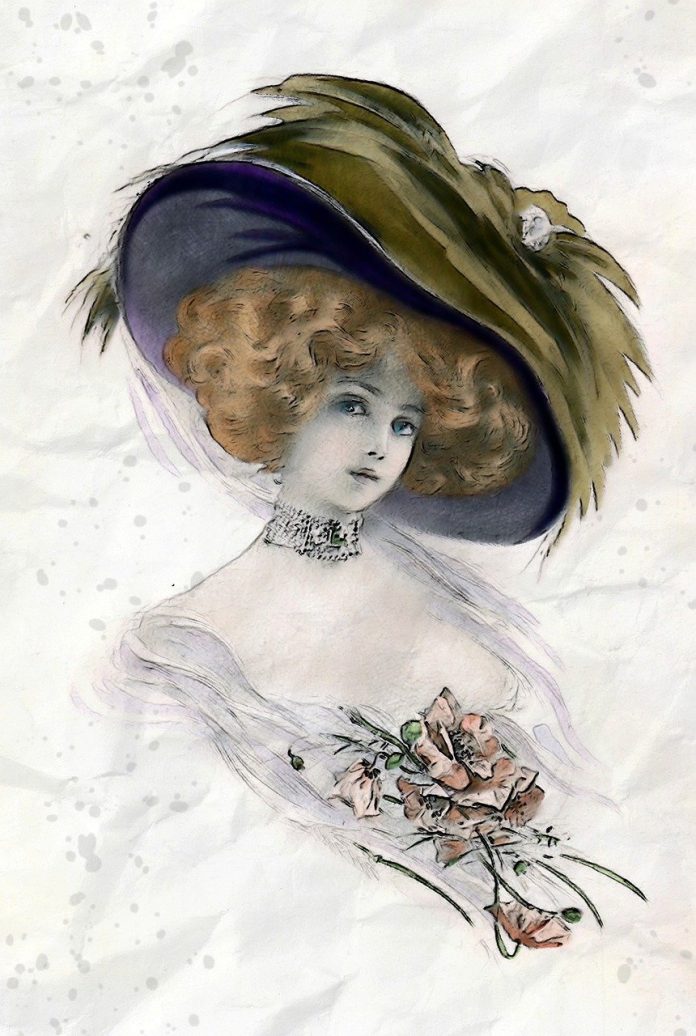A Woman of Genius: Exploring the Pioneering Work of Mary Hunter Austin
Introduction to “A Woman of Genius” by Mary Hunter Austin
“A Woman of Genius” by Mary Hunter Austin, published in 1912, stands as a compelling exploration of a woman’s struggle for self-fulfilment and artistic expression in the early 20th century. The novel reflects Austin’s keen insights into the societal constraints placed on women and the profound inner life of its protagonist, embodying themes that resonate with modern feminist discourse. This work is not merely a reflection of one woman’s struggle but is emblematic of the broader feminist movements that were beginning to take root in society during Austin’s time. Its detailed portrayal of the protagonist’s internal and external battles provides a rich, nuanced view of the fight for gender equality and the quest for personal identity.
The Author: Mary Hunter Austin
Mary Hunter Austin (1868-1934) was a prolific writer known for her deep connection to the American Southwest and her strong advocacy for women’s independence and environmental conservation. Born in Carlinville, Illinois, Austin moved to California, where the vast, arid landscapes profoundly influenced her work. Her writings often incorporate vivid descriptions of the natural environment, reflecting her belief in the interconnection between human life and nature. Besides her novels, she wrote essays, plays, and poetry, becoming an influential figure in early 20th-century American literature. Austin’s commitment to social issues, including her involvement in the suffrage movement and her outspoken critiques of societal norms, positioned her as a formidable figure advocating for progressive changes during a time of significant cultural transformation.
The Plot and Themes of “A Woman of Genius” by Mary Hunter Austin
“A Woman of Genius” follows the life of Olivia Lattimore, a talented actress who grapples with her desires for artistic expression against the backdrop of societal expectations. Olivia’s journey is one of self-discovery and defiance as she challenges the norms that seek to confine her to domesticity and subservience. The novel unfolds in a series of personal and professional trials that reveal Olivia’s resilience and determination to maintain her artistic integrity. Through her interactions with various characters—each representing different facets of societal expectations—Olivia’s struggle becomes a poignant narrative about the sacrifices and compromises women often must make. The themes of identity, autonomy, and the pursuit of passion versus societal duty are intricately woven into Olivia’s story, making it a rich text for analysing early feminist literature.
Feminist Undertones
“A Woman of Genius” is suffused with feminist undertones, advocating for a woman’s right to self-determination and artistic freedom. Austin’s portrayal of Olivia’s struggle mirrors her own experiences and those of many women who fought for their place in the public and artistic spheres. The novel critique is concerned with the societal norms that restrict women’s roles and underscores the necessity of personal and creative liberation. Austin does not shy away from depicting the emotional and psychological toll that these struggles take on women. Instead, she presents a realistic and often gritty portrayal of the costs of defying societal expectations. This candid exploration of gender dynamics and the patriarchal structures of the early 20th century offers valuable insights into the historical context of women’s rights movements and their ongoing relevance.
Literary Significance of “A Woman of Genius” by Mary Hunter Austin
The novel’s literary significance lies in its early feminist perspective and its psychological depth. Austin’s rich, descriptive prose and her ability to capture the inner workings of her protagonist’s mind make “A Woman of Genius” a precursor to later feminist literature. By delving into Olivia’s thoughts, fears, and aspirations, Austin creates a character who is both relatable and inspirational. The book’s focus on a woman’s inner life and her quest for self-realisation was ahead of its time, offering insights that continue to be relevant in contemporary discussions about gender and creativity. Moreover, the novel’s exploration of the conflict between personal ambition and societal expectations provides a timeless commentary on the universal struggle for self-fulfilment.
Impact on Contemporary Feminism
The impact of “A Woman of Genius” extends beyond its initial publication, influencing contemporary feminist thought and literature. The novel’s candid exploration of a woman’s internal and external struggles against societal norms resonates with the ongoing feminist discourse on gender roles and the quest for equality. Modern feminist writers and scholars often reference Austin’s work for its pioneering portrayal of a woman’s fight for autonomy and creative expression. The themes of self-fulfilment and resistance against patriarchal constraints found in the novel mirror the issues addressed by current feminist movements, making it a relevant and influential piece in understanding the historical context of women’s rights.
Reception and Legacy of “A Woman of Genius” by Mary Hunter Austin
Upon its release, “A Woman of Genius” received both praise and criticism for its bold subject matter and its departure from traditional portrayals of women in literature. Some contemporaries lauded Austin for her brave depiction of a woman’s quest for independence, while others found the novel’s themes controversial. Over time, however, the book has been re-evaluated and is now celebrated as a significant work in feminist literature. Its legacy is evident in the way it paved the path for later writers to explore complex female characters and feminist themes. Scholars often regard Austin’s work as a cornerstone in the canon of early feminist literature, highlighting its enduring influence on the genre.
Influence on Other Works by Austin
“A Woman of Genius” is part of a broader body of work in which Mary Hunter Austin explores themes of identity, nature, and gender. Her other notable works, such as “The Land of Little Rain” and “The Flock,” similarly reflect her deep engagement with the American Southwest and her progressive views on women’s roles. Austin’s ability to weave environmental and feminist themes into her narratives creates a unique literary voice that distinguishes her work. The influence of “A Woman of Genius” can be seen in these later works, where Austin continues to question societal norms and advocate for a balanced harmony between humans and their environment.
Personal Reflections and Broader Implications of “A Woman of Genius” by Mary Hunter Austin
Mary Hunter Austin’s reflections and broader societal implications are intricately embedded in “A Woman of Genius.” Drawing from her own experiences and struggles as a female writer in a male-dominated field, Austin infuses Olivia Lattimore’s character with authenticity and depth. The novel serves not only as a personal manifesto but also as a broader commentary on the social and cultural constraints of the time. By examining the implications of Olivia’s journey, readers gain insight into the extensive societal structures that have historically oppressed women and the ongoing fight for equality and recognition.
Conclusion
Mary Hunter Austin’s “A Woman of Genius” is a pioneering work that sheds light on the challenges faced by women striving for artistic and personal fulfilment in a restrictive society. Through the character of Olivia Lattimore, Austin articulates a powerful critique of the societal constraints on women and champions the cause of feminist self-assertion. The novel continues to be a poignant exploration of the struggles and triumphs of a woman of genius, resonating with readers who grapple with similar issues today. Its relevance endures, serving as a reminder of the progress made and the ongoing struggles for gender equality. As such, “A Woman of Genius” continues to inspire and challenge readers to reflect on the complexities of identity, freedom, and the pursuit of one’s true self.





